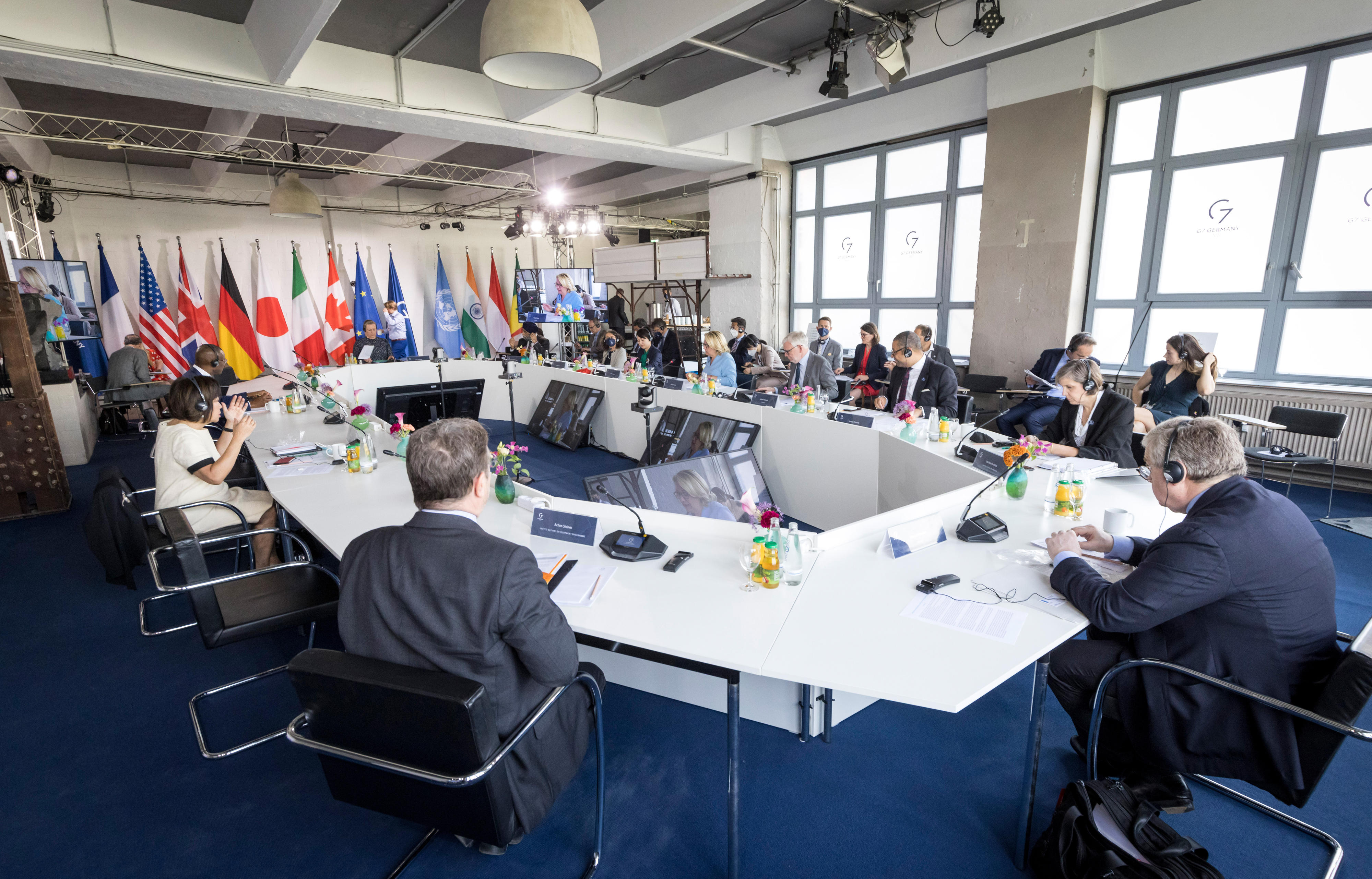G7 Development Ministers’ Meeting in Berlin Global Alliance for Food Security launched
Participants of the meeting of the G7 development ministers in Berlin during a working session
Development Minister Schulze said: “Russia’s war of aggression against Ukraine has dramatically exacerbated the global food situation. The worst famine since the Second World War is threatening. Because of that we need to take determined and concerted action and ensure that grain supplies quickly reach the people facing famine. However, we also want to ensure that structures are permanently altered in such a way that developing countries are more able in future to be self-sufficient, instead of being dependent on the global market. The Global Alliance for Food Security that I have proposed together with the World Bank President David Malpass now has the support of the G7. But that is just the start. The Alliance is open to all who want to work with us on developing solutions. The involvement of the World Bank will help us achieve a sustained impact with this Alliance.”
In addition to the World Bank, the G7 and the EU Commission, the Alliance is already supported by the UN Global Crisis Response Group, Norway, Denmark, the African Union, the UN World Food Programme (WFP) and the International Fund for Agricultural Development (IFAD). The Alliance is also open to the private sector and to civil society organisations.
The development ministers of the G7 countries came together on 18 and 19 May for a meeting in Berlin to discuss joint development policy responses to current challenges. Topics on the agenda also included the reconstruction of Ukraine, the food crisis, climate change and feminist development policy. Together with the G7 health ministers, the development ministers also consulted on measures for defeating the COVID-19 pandemic, how to prepare for future pandemics and how to strengthen health systems globally.
As part of their efforts to combat climate change, the G7 countries agreed to conclude more Just Energy Transition Partnerships with developing countries. The G7 also reaffirmed their intention of entering into country partnerships in order to mobilise public and private funds for sustainable and climate-resilient infrastructure.
For the first time in a G7 communiqué, they also made a commitment to increase their activities in the context of climate-related damage and loss. For example, one aspect here is severe weather event disasters in developing countries as a result of climate change. The joint G7 goal is to set up a shield against climate risks to provide protection before a crisis even arises – for example, via insurance or social protection systems.
Minister Schulze said: “Climate-related damage has been a controversial topic of discussion between industrialised and developing countries for a long time. We want to take on a mediating role here and develop concrete solutions for this problem. I am confident that this concept will help with building bridges at the next climate conference in Egypt.”
For the first time, the concept of a feminist development policy has been included in a G7 communiqué. The G7 development ministers want to break up structures and role models that cement gender inequality. Girls and women are especially hard hit by the impacts of crises and empowering them is a key for good development. Minister Schulze said: “Countries with strong women and girls are stronger societies that are better equipped to meet global challenges.”
Another topic on the agenda was the debt burden on developing countries and emerging economies. The G7 emphasised that progress would need to be made on the G20 Common Framework so that both public and private creditors are included. This topic will also be on the agenda of the G7 Finance Ministers’ Meeting in Bonn.
The Group of 7 (G7) consists of Canada, France, Germany, Italy, Japan, the UK and the USA. The European Union also participates in G7 meetings. Germany took on the presidency of the Group of 7 from the United Kingdom on 1st January this year. The presidency lasts for one year. On 1 January 2023 Japan will take on the presidency of the G7.





